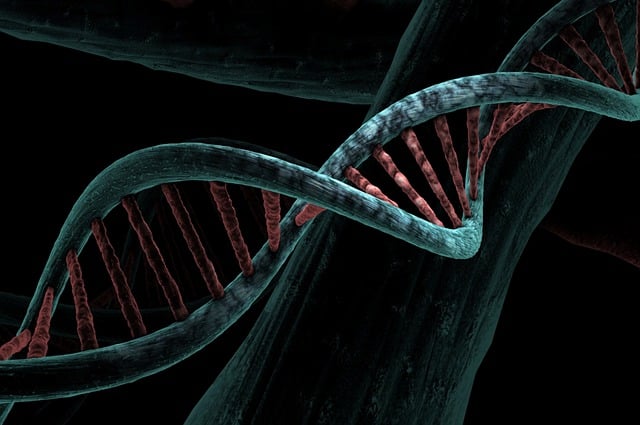Exploring the Genetic Diversity of Caribbean Populations
The Caribbean region is known for its stunning beaches, vibrant culture, and rich history. However, what many people may not realize is that the Caribbean is also home to a diverse array of genetic backgrounds. The genetic makeup of Caribbean populations is a fascinating blend of African, European, and Indigenous American ancestry, resulting from centuries of migration, colonization, and intermixing.
One of the most significant contributors to the genetic diversity of Caribbean populations is the transatlantic slave trade. Millions of Africans were forcibly brought to the Caribbean as slaves during the colonial period, particularly to work on sugar plantations. As a result, African genetic markers are prevalent in many Caribbean populations, with varying degrees of admixture depending on the specific island and historical context.
In addition to African ancestry, Caribbean populations also have significant European genetic contributions. European colonization of the Caribbean began in the late 15th century, with the arrival of Spanish, Portuguese, Dutch, French, and British settlers. These European colonizers intermingled with Indigenous American and African populations, leading to the emergence of mixed-race populations with diverse genetic backgrounds.
Indigenous American genetic markers are also present in Caribbean populations, although to a lesser extent than African and European ancestry. The Indigenous peoples of the Caribbean, such as the Taino, Carib, and Arawak, were decimated by European diseases and violence following the arrival of Columbus in 1492. However, some Indigenous genetic markers have persisted in modern Caribbean populations, particularly in regions where Indigenous communities were able to survive and maintain their cultural identity.
The genetic diversity of Caribbean populations is further enriched by the influx of immigrants from other parts of the world. In the 19th and 20th centuries, Caribbean countries experienced waves of migration from Asia, particularly from countries such as India, China, and the Philippines. These immigrant populations brought their own genetic markers to the Caribbean, adding another layer of diversity to the region’s genetic landscape.
Today, advances in genetic research have made it possible to study the genetic diversity of Caribbean populations in greater detail. Genetic studies have revealed the complex admixture patterns of Caribbean populations, shedding light on the historical processes that have shaped the region’s genetic makeup. These studies have also highlighted the unique genetic signatures of different Caribbean islands, reflecting the diverse histories and migration patterns of each island.
Understanding the genetic diversity of Caribbean populations is not only important for scientific research but also has practical implications for public health and medical genetics. Certain genetic variants are more common in specific populations, and understanding the genetic background of Caribbean populations can help healthcare providers tailor medical treatments and interventions to individual patients.
In conclusion, the genetic diversity of Caribbean populations is a testament to the region’s complex history and cultural heritage. The blending of African, European, Indigenous American, and Asian genetic markers has created a unique genetic mosaic that reflects the diverse origins of Caribbean people. By studying the genetic diversity of Caribbean populations, we can gain a deeper understanding of the region’s history and contribute to the advancement of genetic research and healthcare in the Caribbean and beyond.
Tracing Ancestral Roots in the Caribbean through DNA Testing

The Caribbean is a region rich in history and culture, with a diverse population that is a melting pot of different ethnicities and backgrounds. Many people in the Caribbean are descendants of African slaves brought to the region during the transatlantic slave trade, as well as indigenous peoples and European colonizers. Tracing one’s ancestral roots in the Caribbean can be a complex and challenging task, given the region’s history of colonization and migration. However, advancements in DNA testing technology have made it easier than ever to uncover one’s genetic heritage and connect with distant relatives around the world.
DNA testing has become increasingly popular in recent years as a way for people to learn more about their ancestry and genetic makeup. By analyzing a person’s DNA, scientists can determine their ethnic background and trace their ancestral roots back hundreds or even thousands of years. In the Caribbean, DNA testing has become a valuable tool for people looking to learn more about their family history and connect with relatives they may not have known existed.
One of the most common types of DNA testing used for ancestry research is autosomal DNA testing, which looks at a person’s entire genome to determine their ethnic background. This type of testing can provide information about a person’s ancestry going back several generations and can help identify genetic markers associated with specific ethnic groups. By comparing their DNA to reference populations from around the world, individuals can get a better understanding of their genetic heritage and where their ancestors may have come from.
Another type of DNA testing that is commonly used for ancestry research is mitochondrial DNA testing, which looks at the DNA passed down from a person’s mother. This type of testing can be particularly useful for tracing maternal lineages and identifying genetic markers associated with specific ethnic groups. By analyzing mitochondrial DNA, individuals can learn more about their maternal ancestry and connect with relatives who share the same maternal lineage.
Y-chromosome DNA testing is another type of DNA testing that is commonly used for ancestry research, particularly for tracing paternal lineages. This type of testing looks at the DNA passed down from a person’s father and can help identify genetic markers associated with specific male lineages. By analyzing Y-chromosome DNA, individuals can learn more about their paternal ancestry and connect with relatives who share the same paternal lineage.
In addition to providing information about a person’s ethnic background and ancestral roots, DNA testing can also help individuals connect with distant relatives around the world. By comparing their DNA to databases of other individuals who have taken DNA tests, people can identify genetic matches and potential relatives they may not have known existed. This can be particularly valuable for people in the Caribbean, where the population is so diverse and many families have connections to multiple countries and regions.
Overall, DNA testing has revolutionized the way people in the Caribbean and around the world can trace their ancestral roots and connect with distant relatives. By analyzing their DNA, individuals can learn more about their genetic heritage, ethnic background, and family history, helping them to better understand who they are and where they come from. Whether you are looking to learn more about your Caribbean roots or connect with relatives around the world, DNA testing can provide valuable insights into your ancestry and help you uncover the secrets of your genetic past.
Understanding the Impact of Colonialism on Caribbean DNA Profiles
The Caribbean region is a melting pot of cultures, languages, and traditions, shaped by centuries of colonization and migration. The impact of colonialism on the DNA profiles of Caribbean populations is a complex and multifaceted issue that continues to shape the genetic makeup of the region today.
Colonialism in the Caribbean began in the late 15th century with the arrival of European explorers and settlers. The Spanish, Portuguese, Dutch, French, and British all established colonies in the region, bringing with them their own languages, customs, and genetic heritage. The forced migration of African slaves to work on plantations further added to the genetic diversity of the Caribbean population.
The legacy of colonialism can be seen in the DNA profiles of Caribbean populations, which often exhibit a mix of European, African, and indigenous Amerindian ancestry. Genetic studies have shown that the majority of Caribbean people have a significant amount of African ancestry, reflecting the history of the transatlantic slave trade. However, there is also a substantial European genetic component, particularly among populations with a history of colonization by the Spanish, Portuguese, or British.
The genetic diversity of the Caribbean population is a testament to the region’s complex history of colonization and migration. The mixing of different genetic backgrounds has created a unique and diverse gene pool that sets the Caribbean apart from other regions of the world. This genetic diversity is not only a reflection of the region’s history but also has important implications for health and disease.
Studies have shown that certain genetic variants are more common in Caribbean populations than in other ethnic groups, which can have implications for the diagnosis and treatment of genetic diseases. Understanding the genetic diversity of Caribbean populations is therefore crucial for improving healthcare outcomes and addressing disparities in health.
In addition to its impact on health, the genetic diversity of the Caribbean population also has cultural and social implications. The blending of different genetic backgrounds has created a rich tapestry of traditions, languages, and customs that are unique to the region. This cultural diversity is a source of pride for many Caribbean people and has helped to shape the identity of the region.
Despite the legacy of colonialism, Caribbean people have a strong sense of resilience and cultural pride that is reflected in their DNA profiles. The genetic diversity of the region is a testament to the strength and resilience of Caribbean populations, who have overcome centuries of oppression and exploitation to create a vibrant and diverse society.
In conclusion, the impact of colonialism on Caribbean DNA profiles is a complex and multifaceted issue that continues to shape the genetic makeup of the region today. The genetic diversity of Caribbean populations is a reflection of the region’s history of colonization and migration, and has important implications for health, culture, and identity. Understanding and celebrating this genetic diversity is crucial for recognizing the resilience and strength of Caribbean people, and for promoting health and well-being in the region.

